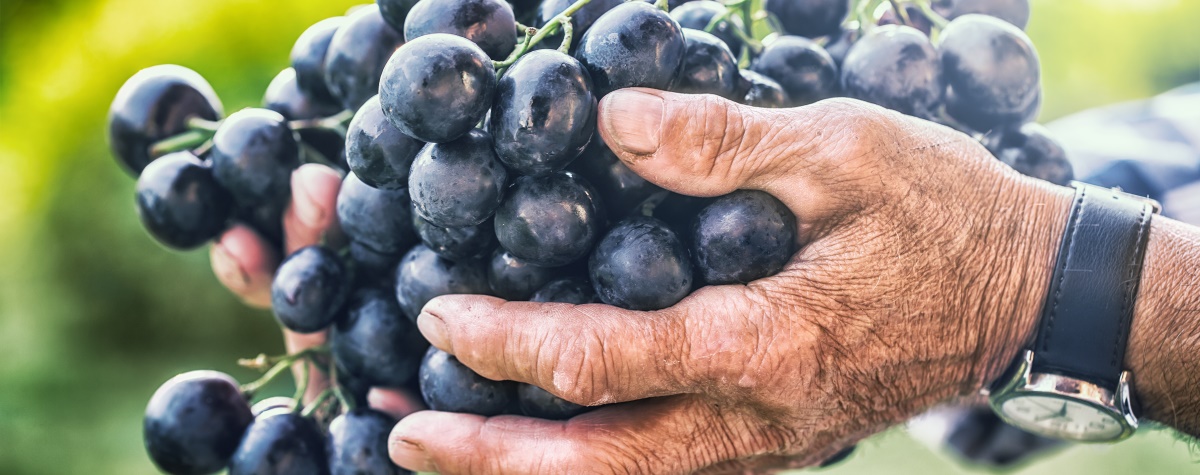Here are the results from recent studies, which have focused on the consequences that alternative farming systems have on vine, grape and wine parameters.
'Organic and biodynamic treatments reduce income by 25% due to the additional cost of cultivation and yield losses'
Australia
Compared to conventional practices, organic and biodynamic treatments improve soil properties and lower yield while maintaining yield/pruning weight ratio and the levels of nutrients accumulated in petioles. However, after six years, no consistent results were found regarding chemical composition of wine and fruit.This said, after blind tasting, wine experts scored organic and biodynamic wines higher, systematically. The origins of such sensory differences, which are consistently reported by ‘expert panels’ – but not by ‘consumer panels’ – remain a mystery. It is interesting to note that over multiple years and multiple wine tasting sessions, scientific results could not discriminate tasting notes from organically and biodynamically farmed wines.
From an economical standpoint, organic and biodynamic treatments reduce income by 25% due to the additional cost of cultivation and yield losses. The open question is: “To what extent can improved wine quality offset those economic constraints?”
'Over consecutive seasons, organic and biodynamic treatments significantly lower vine growth and yield in comparison to conventional treatments'
Germany
Results from long-term studies show that under organic and biodynamic treatments, vines assimilate higher levels of nitrogen, while a lower leaf area development was observed along with higher sugar concentrations at harvest.Over consecutive seasons, organic and biodynamic treatments significantly lower vine growth and yield in comparison to conventional treatments. Comparing resistance to disease, authors found that yield under organic and biodynamic treatments partially decreased because of increased downy mildew.
Is there a relationship between sustainable farming practices and wine quality?
Organic and biodynamic wines are perceived to be more complex aromatically, more “full bodied”, displaying stronger “minerality” and more “length” with “more texture” than wines obtained via conventional practices. However, when comparing organic and biodynamic wines, results from Italian, Australian and German studies could not find a preferred treatment.
In terms of vineyard performance, contrasted results show that local growing conditions modulate the success of alternative strategies. Thus, it is difficult to predict the impact of organic and biodynamic practices on fruit composition.
Transitioning from conventional to organic and biodynamic farming will reduce vine growth and yield by 20%, largely by reducing soil moisture. Adoption of organic and biodynamic farming should not modify sugar concentration. The good thing is that a greater appreciation of wine quality is expected and may compensate for yield reduction.
Some relevant studies
Döring J, Frisch M, Tittmann S, Stoll M, Kauer R (2015), Growth, Yield and Fruit Quality of Grapevines under Organic and Biodynamic Management. View hereMeißner G. Untersuchungen zu verschiedenen Bewirtschaftungssystemen im Weinbau unter besonderer Berücksichtigung der biologisch-dynamischen Wirtschaftsweise und des Einsatzes der biologisch-dynamischen Präparate. Doctoral dissertation, Justus-Liebig-Universität Gießen. 2015
Botelho, R. V., Roberti, R., Tessarin, P., Garcia-Mina, J. M., & Rombolà, A. D. (2015), Physiological responses of grapevines to biodynamic management. Renewable Agriculture and Food Systems, 31(05), 402–413. View here
Laghi, L. , Versari, A. , Marcolini, E. and Parpinello, G. (2014), Metabonomic Investigation by 1H-NMR to Discriminate between Red Wines from Organic and Biodynamic Grapes. Food and Nutrition Sciences, 5, 52-59. View here
Parpinello G. P., Rombolà A.D., Simoni M., Versari A.. Chemical and sensory characterization of Sangiovese red wines: Comparison between biodynamic and organic management, Food Chemistry, Volume 167, 2015, Pages 145-152, ISSN 0308-8146. View here
Collins C., Penfold C., Johnston L., Bastian S., Marshner P.. The relative sustainability of organic, biodynamic and conventional viticulture. 19th International Meeting of Viticulture GiESCO, Pech rouge- Montpellier, May 31- June2nd, 2015, professional day, sustainable viticulture. pp53-55.
Thibaut Scholasch is co-founder of Fruition Sciences, which has offices in France (Montpellier and Bordeaux) and the USA (Napa, CA). Thibaut has worked as a winemaker and consultant for wineries around the globe and is regarded as an expert in controlling the effects of environmental stresses on vine physiology, fruit and wine quality.











.png)









